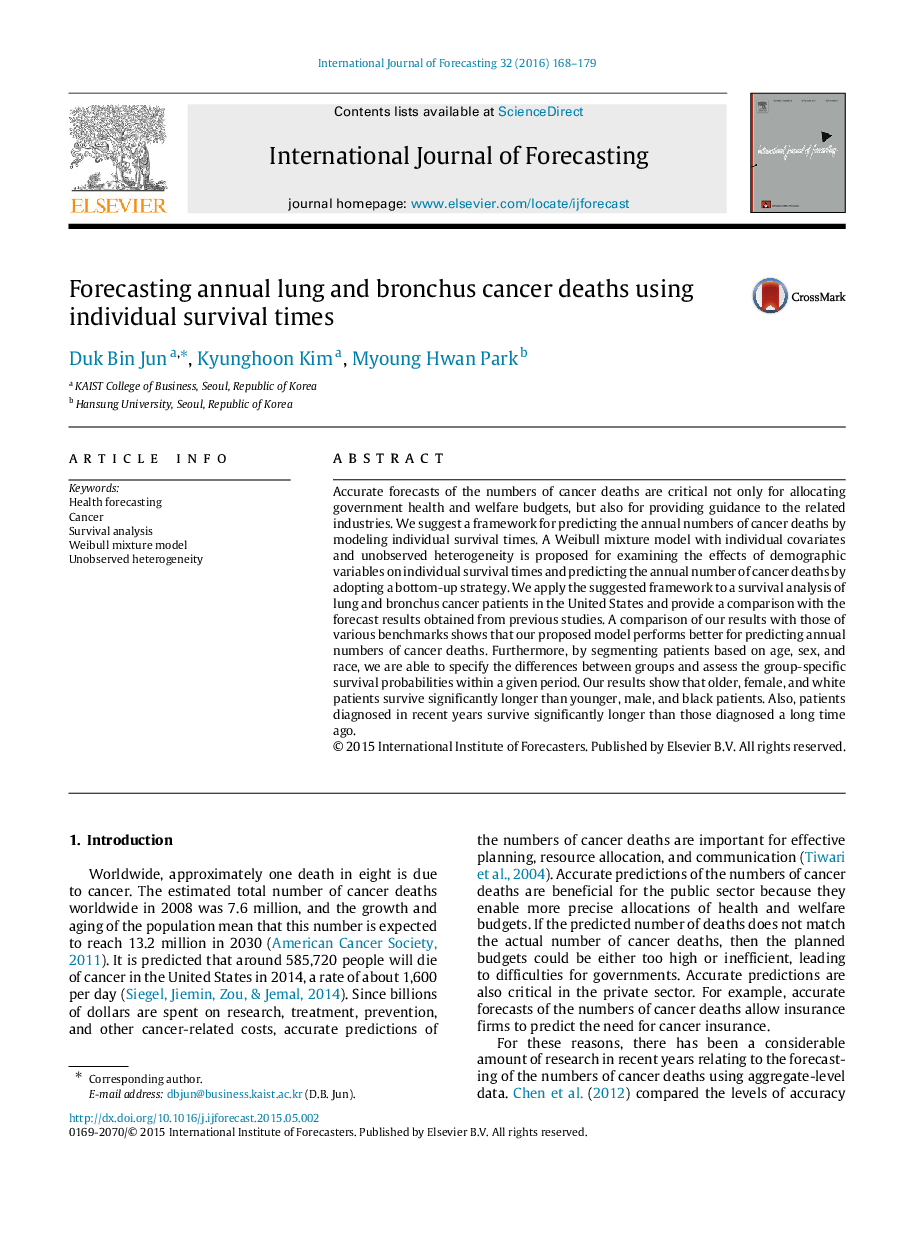| Article ID | Journal | Published Year | Pages | File Type |
|---|---|---|---|---|
| 7408320 | International Journal of Forecasting | 2016 | 12 Pages |
Abstract
Accurate forecasts of the numbers of cancer deaths are critical not only for allocating government health and welfare budgets, but also for providing guidance to the related industries. We suggest a framework for predicting the annual numbers of cancer deaths by modeling individual survival times. A Weibull mixture model with individual covariates and unobserved heterogeneity is proposed for examining the effects of demographic variables on individual survival times and predicting the annual number of cancer deaths by adopting a bottom-up strategy. We apply the suggested framework to a survival analysis of lung and bronchus cancer patients in the United States and provide a comparison with the forecast results obtained from previous studies. A comparison of our results with those of various benchmarks shows that our proposed model performs better for predicting annual numbers of cancer deaths. Furthermore, by segmenting patients based on age, sex, and race, we are able to specify the differences between groups and assess the group-specific survival probabilities within a given period. Our results show that older, female, and white patients survive significantly longer than younger, male, and black patients. Also, patients diagnosed in recent years survive significantly longer than those diagnosed a long time ago.
Related Topics
Social Sciences and Humanities
Business, Management and Accounting
Business and International Management
Authors
Duk Bin Jun, Kyunghoon Kim, Myoung Hwan Park,
